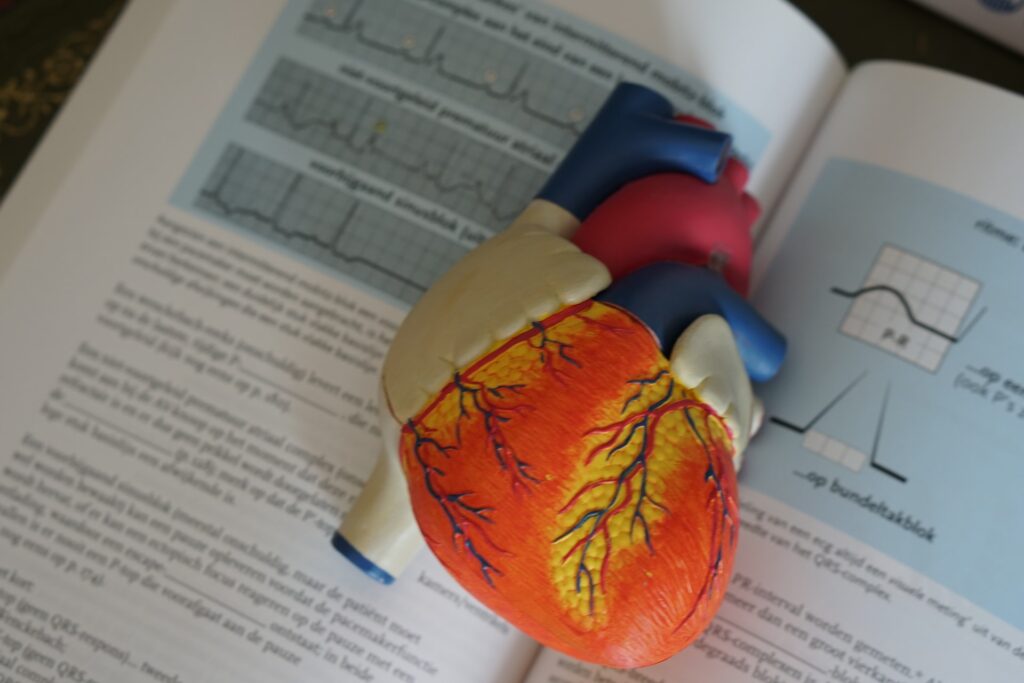
We have mentioned this in many of the other health related articles that we have posted to the site: There are things in life that are simply out of our control. There are things that happen that no matter how ready we are, no matter how prepared we are, things will happen to us and to our loved ones that we can do absolutely nothing about. Some of these things may be good things and it may feel like it at the time, somethings will be bad things. This is life.
But there are also things that we can do to maintain, better and improve our life. If we make the time and put in the effort, there are things that we can do that will have a positive effect for our lives.
And since there are so many things that happen in life that are out of our control, and since so many of the things that happen can have a negative effect to our lives, then the question that we should all be asking ourselves is this:
Why wouldn’t we be doing things that would improve the odds for us to have a good and decent life?
With so much of life seemingly and potentially working against us, why do we not do all of the things that are actually within our power to do that would better our lives?
Why do we end up being self-destructuve when for so many things we do not have to be?
This question is a critical question that we need to be asking oursleves these days about our health and for this article, specifically for our heart health.
There are problems that we can have with our heart and our circulatory system that are genetic, or with us from our birth. Then their are many problems that we can have with our heart that our caused by the lifestyle that WE CHOOSE TO LIVE!
The simple truth is that heart problems will put us into an early grave.
Today, now, start doing the things that can improve your heart health and allow you to live a healthy active and productive life.
Heart Problem Research
The Centers for Disease Control & Prevention states that heart disease is the leading cause of death in America, causing nearly 647,000 deaths on an annual basis. That means about 25% of Americans will die from heart disease despite the fact that many cases can be entirely prevented or improved with lifestyle changes.
What You Can Do Now, To Improve Your Heart Health which, of course, will also benefit your overall health:
Improve Your Diet
Eating an unhealthy diet and increasing your ratio of body fat to muscle mass puts undue stress on your heart and other organs. Research published in the Journal of the American College of Cardiology states that diet can be a contributing factor to cardiovascular disease diagnosis. Diets high in refined carbohydrates, sugar-sweetened beverages, fats, and meats are more likely to lead to heart disease. On the contrary, it has been discovered that a diet high in fruits, vegetables, legumes, low-fat dairy products, and fish is known to lower your risk.
Get Active
Cardiovascular exercise helps to strengthen your heart muscle and encourage it to work more efficiently. Research from the American Journal of Lifestyle Medicine reveals that heavy physical activity may lower your risk of developing heart disease. The study revealed that engaging in longer periods of activities like swimming and jogging can help to lower your risk of dying from cardiovascular disease by up to 62%. The research shows that even 3.5 hours of walking at a decent pace per week can be influential on your overall risk of heart disease.
Quit Smoking Cigarettes
The chemicals found in cigarettes are known to wreak havoc on the blood vessels and the arteries, impacting blood flow and increasing your risk of heart disease. In fact, the Cleveland Clinic found that about 20% of deaths caused by heart disease were a result of smoking cigarettes.
Since there is no “healthy” amount of cigarette smoking, you’ll have to develop a plan to slowly quit over the period of weeks or months. This can be made easier with the help of nicotine patches or by developing alternative coping strategies.
Learn How to Cope With Stress
As you maintain a high level of stress, your body continues to make greater levels of cortisol. This can greatly increase your cholesterol, triglycerides, and blood pressure levels over time. Stress relief can come in several forms and not every style will work well for you. For example, you can use meditation or deep breathing techniques when you’re particularly stressed to lower your blood pressure and ease your mind. Or you can learn to express your emotions instead of holding them in, either through conversations or via art.
Visit Your Doctor Regularly
In many cases, you won’t know that you have heart disease until you undergo testing where a doctor can officially diagnose you. Be sure to visit your doctor at least once a year, perhaps even more often if you have pre-existing health conditions.
You should undergo a stress test to detect abnormalities in your heart’s functioning, blood pressure checks to determine your risk of heart disease, and blood testing to see that you’re healthy. Visit your doctor if you have any health concerns and pursue treatment strategies immediately.
Conclusion – Final Thoughts
Okay, the truth be told, there’s no 100% guaranteed way to prevent heart disease, but there are some minor changes you can make in your daily life to lower your risk.
Overall, you’re looking to be “healthy” overall. That means that you need to be adopting a healthy diet, engaging in a regular exercise plan, coping with stress, quitting your smoking habit, or even just seeing your doctor.
Most importantly, you need to act quickly after a heart disease diagnosis to improve your prognosis.
Be A Man – Do The Right Thing. It’s Your Life. It’s Your Choice. Take Care Of Yourself. Eat Right And Exercise.
BAM!!! Be A Man! Do The Right Thing.
Be the DtRTy Guy!
Sources:
https://www.cdc.gov/heartdisease/facts.htm
https://www.ncbi.nlm.nih.gov/pmc/articles/PMC4597475/
https://www.ncbi.nlm.nih.gov/pmc/articles/PMC2857374/
https://my.clevelandclinic.org/health/articles/17488-smoking
